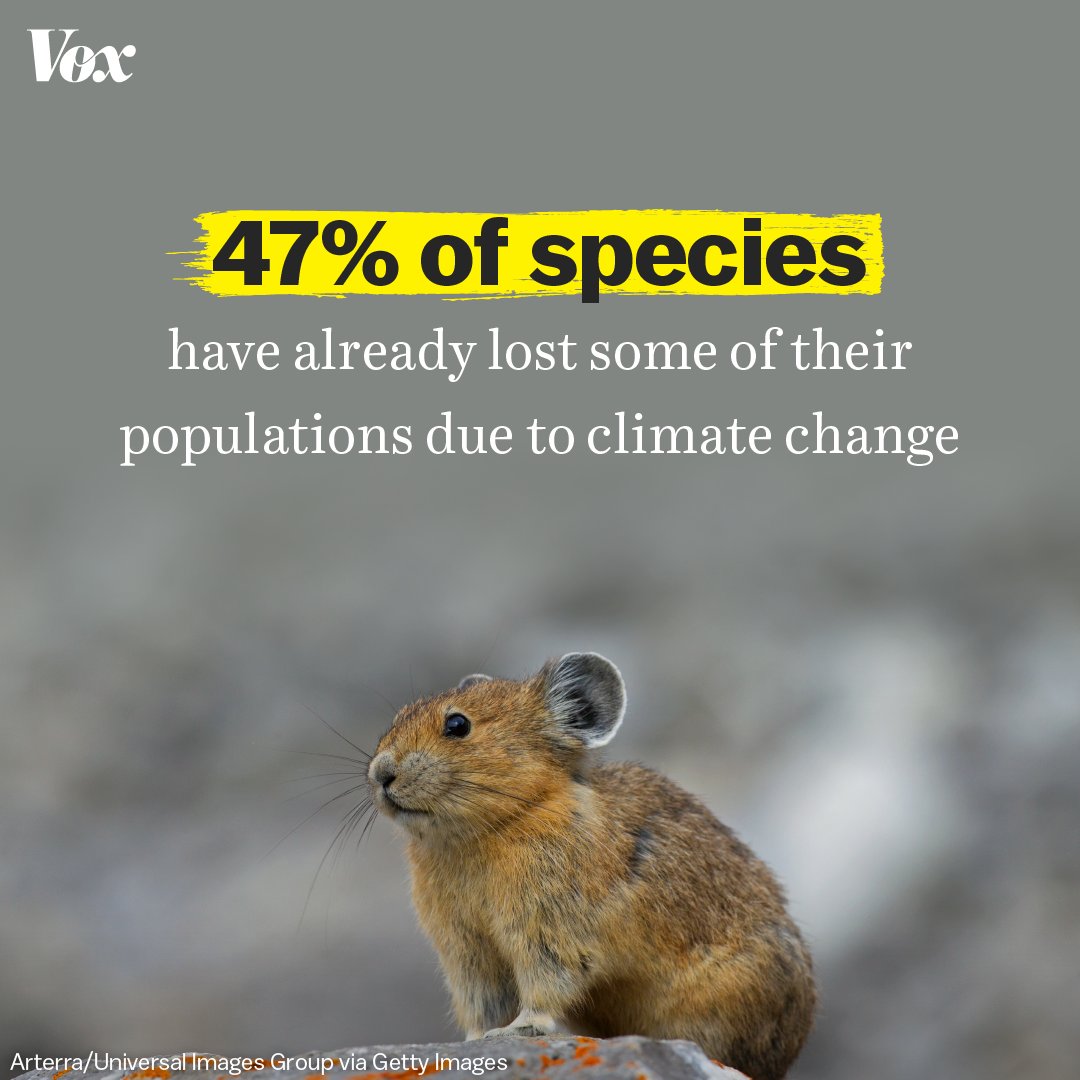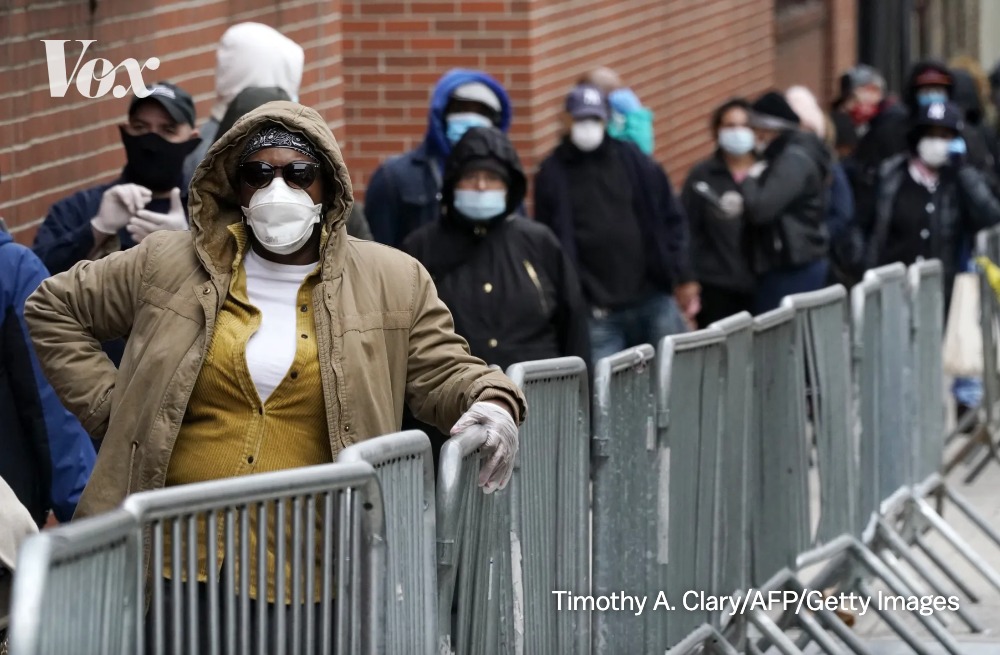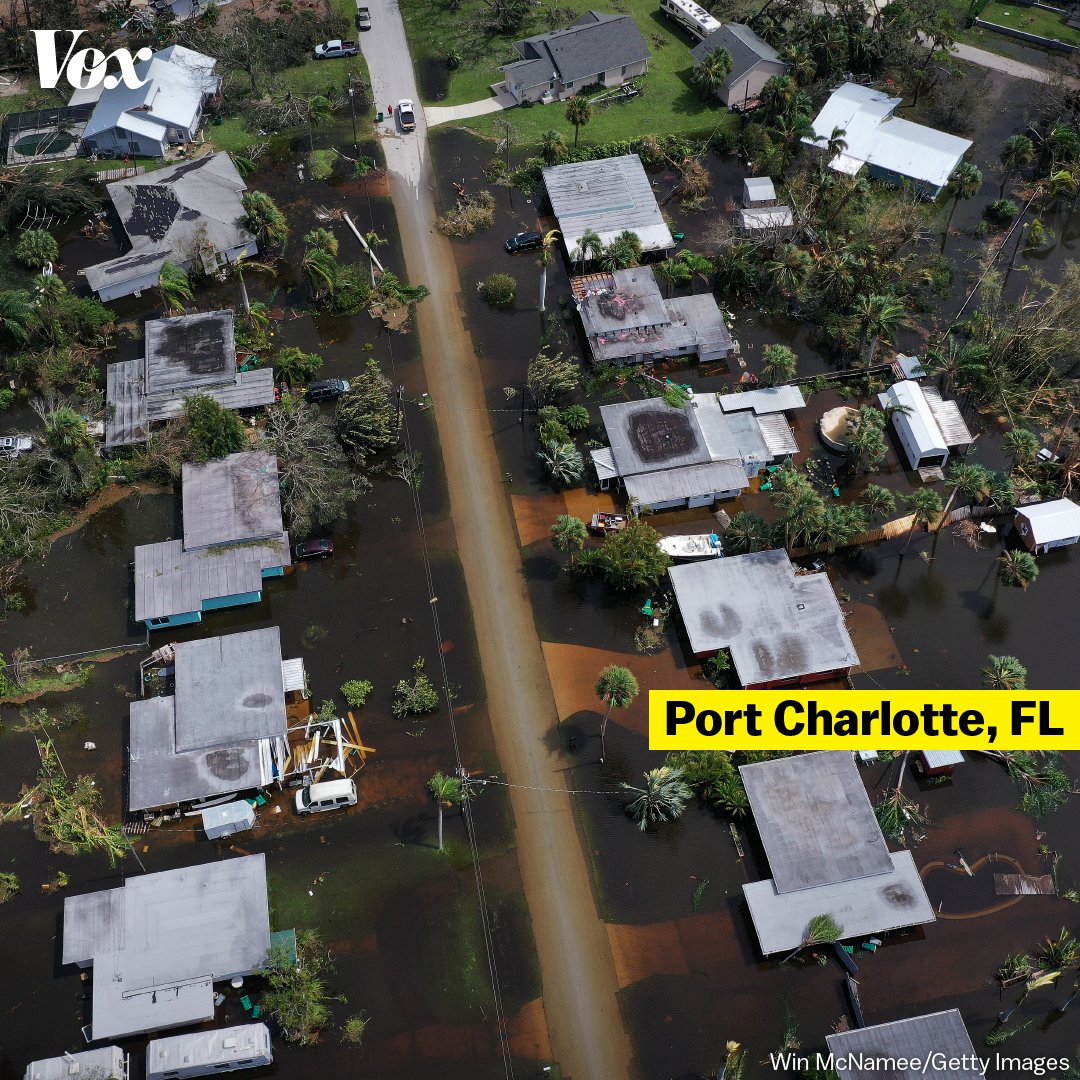Global warming is threatening biodiversity and ecosystems — and five statistics reveal how grave the risk is.
That's according to new report released earlier this week by the UN's Intergovernmental Panel on Climate Change (IPCC). trib.al/hTqLb7f
That's according to new report released earlier this week by the UN's Intergovernmental Panel on Climate Change (IPCC). trib.al/hTqLb7f
In the next few decades, some plants and animals will likely experience temperatures "beyond their historical experience."
Even 1.2°C of warming — just above current levels — puts many ecosystems at risk from heatwaves, drought, and other climate extremes.
Even 1.2°C of warming — just above current levels — puts many ecosystems at risk from heatwaves, drought, and other climate extremes.

Global warming has already extinguished local populations of many creatures.
For example, the American pika seen here has disappeared from a large swath of its former habitat, likely due to climate change, according to a 2017 study.
For example, the American pika seen here has disappeared from a large swath of its former habitat, likely due to climate change, according to a 2017 study.

Climate change is also reorganizing entire ecosystems.
To escape deadly temperatures, plants and animals are moving to (once) colder climates — that is, toward the poles, up mountainsides, or into deeper water.
To escape deadly temperatures, plants and animals are moving to (once) colder climates — that is, toward the poles, up mountainsides, or into deeper water.

Climate scientists have an especially grim prognosis for coral reefs:
Just 1.5°C of warming could destroy up to 90% of tropical coral reefs, which are home to an incredible diversity of organisms and form the basis of many fisheries.
Just 1.5°C of warming could destroy up to 90% of tropical coral reefs, which are home to an incredible diversity of organisms and form the basis of many fisheries.

The impact of climate change on food production is equally troubling.
Just 1.6°C of warming this century will make 8% of today’s farmland "climatically unsuitable," according to the report.
Just 1.6°C of warming this century will make 8% of today’s farmland "climatically unsuitable," according to the report.

The IPCC report is a big deal.
It's considered the gold standard for climate science — and it has never before revealed in such stark detail how climate change is leading to a staggering loss of plants and animals. trib.al/hTqLb7f
It's considered the gold standard for climate science — and it has never before revealed in such stark detail how climate change is leading to a staggering loss of plants and animals. trib.al/hTqLb7f
This is key because humans are inextricably reliant on many at-risk species — from the animals that pollinate crops and filter rivers and streams to those that feed us.
Just in the US, 150+ crops rely on pollinators, including nearly all fruits and grains trib.al/hTqLb7f
Just in the US, 150+ crops rely on pollinators, including nearly all fruits and grains trib.al/hTqLb7f
Humans have warmed the planet by an average of 1.1°C (2°F) since the 19th century.
The Paris climate agreement aims to limit warming to 1.5 to 2°C by 2100, but global temperatures are on track to increase 2 to 3°C by the end of the century. Learn more: trib.al/hTqLb7f
The Paris climate agreement aims to limit warming to 1.5 to 2°C by 2100, but global temperatures are on track to increase 2 to 3°C by the end of the century. Learn more: trib.al/hTqLb7f
• • •
Missing some Tweet in this thread? You can try to
force a refresh










